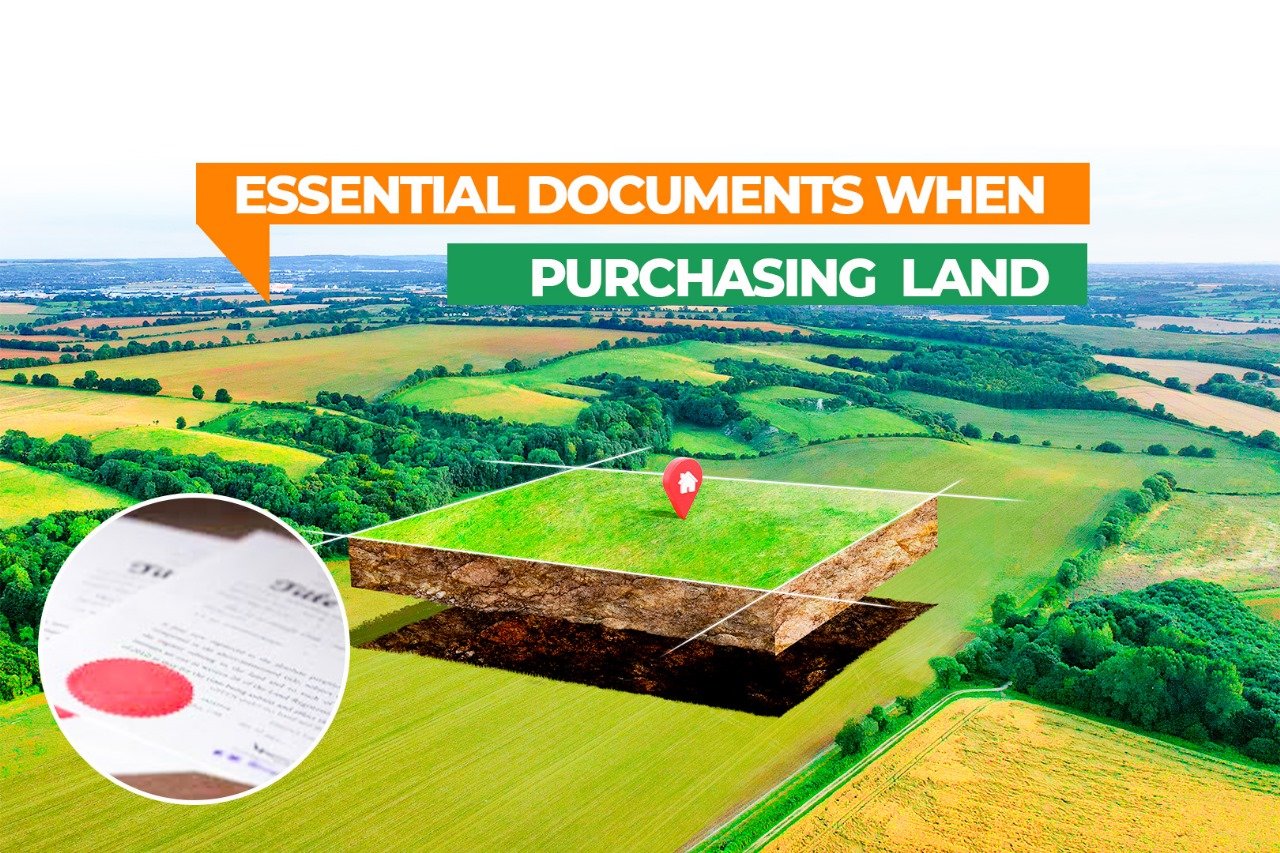Essential Documents to Consider When Buying Land or Property in Kenya
Buying land or property in Kenya can be an exciting yet daunting endeavor. It’s a significant investment that requires careful consideration and thorough due diligence to avoid any legal or financial pitfalls. One crucial aspect of the property buying process is ensuring that you have all the necessary documents in place. In this comprehensive guide, we’ll explore the essential documents you need to consider when purchasing land or property in Kenya.
1. Title Deed
A title deed is a legal document that proves ownership of land or property. It contains essential details such as the location, size, and boundaries of the land, as well as the name of the registered owner. When buying land or property in Kenya, it’s crucial to verify the authenticity of the title deed to ensure that the seller has the legal right to transfer ownership. You can obtain a title deed from the Ministry of Lands after completing the necessary procedures and payments.
2. Land Control Board Approval
The Land Control Board plays a vital role in regulating land transactions in Kenya. Before purchasing land, you must obtain approval from the Land Control Board, especially if the land is classified as agricultural or falls under certain restrictions. This approval ensures that the transaction complies with land laws and regulations.
3. Search Report
Conducting a search report is essential to uncover any existing claims or disputes on the land or property you intend to purchase. A search report provides valuable information about the property’s history, including previous ownership, mortgages, and any legal issues. You can obtain a search report from the relevant government authorities or a qualified legal professional.
4. Land Survey Report
A land survey report is necessary to verify the boundaries and physical features of the land. It helps prevent boundary disputes and ensures that you are purchasing the correct parcel of land. A licensed surveyor can conduct the survey and provide a detailed report outlining the land’s dimensions and features.
5. Stamp Duty Certificate
Stamp duty is a tax levied on property transactions in Kenya. To complete the purchase of land or property, you must pay stamp duty and obtain a stamp duty certificate as proof of payment. The amount of stamp duty varies depending on the value of the property and is calculated as a percentage of the purchase price.
6. Transfer Forms
Transfer forms are legal documents used to transfer ownership of land or property from the seller to the buyer. There are different types of transfer forms depending on the nature of the transaction, such as Form 1A for transfers between family members and Form 24 for transfers between unrelated parties. It’s essential to fill out these forms accurately and submit them to the relevant authorities.
7. Sale Agreement
A sale agreement is a legally binding contract between the buyer and seller outlining the terms and conditions of the property sale. It typically includes details such as the purchase price, payment schedule, and any special conditions agreed upon by both parties. A well-drafted sale agreement protects the interests of both the buyer and seller and helps prevent disputes during the transaction process.
8. Receipts of Payment
Keeping receipts of payment is crucial as they serve as proof of transaction and ownership transfer. Whether you’re paying the purchase price in installments or in full, make sure to obtain receipts for every payment made to the seller. These receipts will be invaluable in case of any disputes or legal issues that may arise in the future.
9. Consent to Transfer
In certain cases, you may need to obtain consent to transfer from relevant authorities or stakeholders before completing the transaction. For example, if the land is subject to leasehold or community regulations, you may need consent from the landlord or local community leaders. Ensure that you have all necessary consents in place to avoid any legal complications later on.
10. Clearance Certificate
A clearance certificate is issued by the relevant government authorities to confirm that all necessary taxes and dues related to the property have been paid. It’s essential to obtain a clearance certificate before completing the purchase to ensure that there are no outstanding liabilities attached to the property.
11. Power of Attorney
In some situations, you may need to appoint a representative to act on your behalf during the property buying process. A power of attorney grants legal authority to another person to sign documents and make decisions on your behalf. It’s essential to draft a power of attorney carefully and ensure that the appointed individual acts in your best interests.
12. Encumbrance Certificate
An encumbrance certificate provides information about any existing mortgages, liens, or legal claims on the property. It’s crucial to obtain an encumbrance certificate to verify that the property is free from any encumbrances or legal disputes. You can obtain an encumbrance certificate from the relevant land registry or government office.
13. Mutation Extract
A mutation extract is a document that updates the land records to reflect changes in ownership or other relevant details. It’s essential to obtain a mutation extract after completing the property transaction to ensure that the land records accurately reflect the new ownership status. Failure to update the mutation extract can lead to complications in the future when dealing with property-related matters.
Conclusion
Purchasing land or property in Kenya requires careful consideration and thorough due diligence to ensure a smooth and legally compliant transaction. By obtaining the essential documents outlined in this guide and conducting proper research, you can mitigate risks and protect your investment. Remember to seek guidance from qualified legal professionals and government authorities to navigate the complex process of property acquisition successfully.
FAQs (Frequently Asked Questions)
1. Do I need a lawyer to help me with the property buying process in Kenya?
- While it’s not mandatory to hire a lawyer, having legal representation can provide valuable guidance and ensure that all legal requirements are met.
2. How long does it take to complete the property buying process in Kenya?
- The timeline for completing a property transaction can vary depending on various factors such as the complexity of the transaction, the efficiency of government agencies, and any potential legal issues.
3. What should I do if I encounter any disputes or issues during the property buying process?
- If you encounter any disputes or issues, it’s essential to seek legal advice promptly. A qualified legal professional can help resolve conflicts and protect your interests.
4. Are there any special considerations for foreign buyers purchasing property in Kenya?
- Foreign buyers may be subject to additional regulations and restrictions when purchasing property in Kenya. It’s advisable to consult with legal experts familiar with property laws and regulations affecting foreign investors.
5. How can I ensure that the property I’m buying has a clear title and is free from encumbrances?
- Conducting thorough due diligence, including obtaining search reports, land survey reports, and encumbrance certificates, can help verify the property’s title and identify any potential issues.
Get More Now: novaprime.co.ke





